
May Two-Four is a special weekend in Ontario. It is when we finally head outdoors to celebrate the glorious beginnings of summer.
We head to the cottage, camping, parks, gardens, our patios and pools. We soak in the glorious sunshine and we share it with good friends. It often involves a little beer, wine and, perhaps, the odd cocktail.
In Ontario, that generally means heading to your friendly LCBO store to stock up on whatever you need in one convenient location.
It has been that way ever since I can remember. But I don’t want it to be that way anymore.
As a perfect example of all that is wrong with the booze business in Ontario, this weekend shines a bright light on why a monopoly on wine/beer/liquor stores is bad for all of us.
The workers and its union at the LCBO are threatening to walk off the job this weekend and leave Ontarians without a viable option to pick up their favourite wine, beer or spirits.
They can do this because they work for a monopoly system, one of the few left in the world, thus making us the biggest pawns in the world. We are held hostage because our government is so pig-headed and trapped in a time warp that they see no need to privatize or partially privatize the booze business in this province. Ontario is one of the last in Canada to take that inevitable step and seems no closer to getting where we need to be.
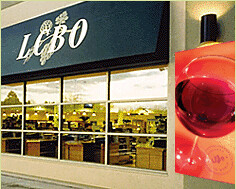 I don’t begrudge the workers at the LCBO one bit. They belong to a powerful union and they have every right to fight for what’s best for their own interests.
I don’t begrudge the workers at the LCBO one bit. They belong to a powerful union and they have every right to fight for what’s best for their own interests.
Unfortunately, their interests aren’t our interests. Our interests involve freedom of choice, which a monopoly can never, ever deliver.
A few of us old-time wine scribes have been railing against the LCBO monopoly for far too long, and I won’t repeat what I’ve written so many times on this blog and in newspaper articles and editorials throughout the years.
I was invited to attend a speech given by Ian Baillie, executive director of the Alliance of Beverage Licensees of B.C., last week. I was travelling and was unable to attend the event on May 9 at the Economic Club of Canada, sponsored by the Ontario Wine Council.
I wish I had been there in person to hear Baillie’s speech on strategies from B.C. on how Ontario can do a better job in retailing beverage alcohol.
It is a brilliant piece of work and explains in perfect detail exactly why Ontario needs to change to a more open system of retailing booze in Ontario.
I urge you to read every word of his speech, offered below in its entirety, and come to your own conclusions.
If there is one thing you can take away from his work below, it is this:
Change will not happen if the people of the province do not stand up and tell their government they want change. It will not occur if consumers continue to remain silent and are complacent with the status quo.
So let’s talk about this. Let’s shout about it. Let’s share ideas and be heard by the government and fight for the changes we need in this province.
Here is Baillie’s speech, unedited:
•••
BYOBC: Strategies from BC on
How Ontario Can Better Retail Beverage Alcohol
 By Ian Baillie (photo left)
By Ian Baillie (photo left)
Executive Director
Alliance of Beverage Licensees (ABLE BC)
Thank you for inviting me to the Economic Club of Canada
I am honoured to be with you today.
I’m here as the head of the Alliance of Beverage Licensees of British Columbia, or ABLE BC.
We are the industry advocate for British Columbia’s 672 private liquor stores, as well as bars and pubs.
We work hard to ensure that government properly understands our members, such as how they meet ever-changing consumer needs and contribute to growing government revenues.
Over the past few decades, and most actively since 2001, ABLE has worked with the government to support the responsible introduction of private liquor stores.
The province did consider going the route of Alberta, which privatized virtually everything in the 1990s; however, in 2002, BC concluded that allowing both government and private stores would create better choices for producers to sell and for consumers to buy.
And that’s why I’m here today – to share some of the lessons we have learned, in the hope they will support Ontarians when making decisions about the future of your own liquor industry.
My background is in politics, and I can tell you that there is more politics in the alcohol industry than in most government offices.
And why wouldn’t there be?
This industry affects thousands of people, from government and business leaders, to consumers and producers of all sizes.
This is important stuff, and it deserves careful attention.
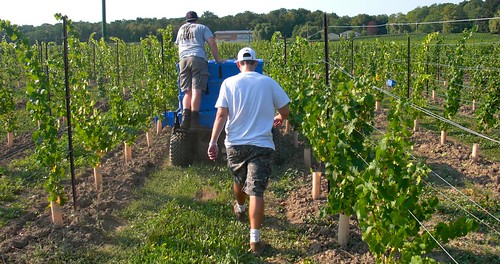
Most of you are here today as experts on the Ontario liquor industry, so I’m not going to stand here explaining your own system to you.
Suffice it to say that Ontario is currently served by two major retailers, the government-run LCBO stores, and the Beer Store.
And these stores serve certain producers and consumers very well; however, because of their size and scale, they just can’t satisfy everyone.
For example, there are certain consumers that prefer to buy small volume VQA wines or Craft beers, and they just aren’t available at either store.
Likewise, many small-scale Ontario producers are not well suited for either store’s large-scale distribution systems.
Why not?
It comes down to volume. With over 630 LCBO stores and 440 Beer stores, these two retailers need large volume products to fill their shelves
It’s just too expensive and too complex to carry a varied range of products in each store.
In addition, like all major chain retailers, these stores are obligated to be consistent.
Consumers have certain expectations about product selection and its important to meet those expectations.
Also, despite their large-scale, these stores have limited shelf space.
With an ever-growing number of products on the market, there just isn’t room for everything to make it into their display cases.
Let’s look more closely at this,
First using Ontario VQA wine as an example
Ontario has a thriving VQA wine industry, producing wines that are recognized around the world.
Some Ontario wines may even be as good as those we produce in BC.
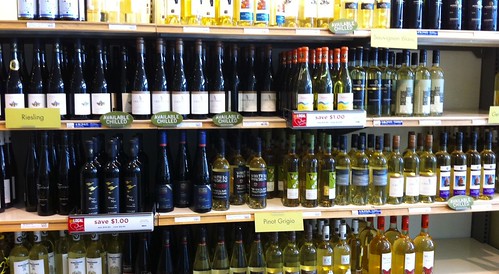
Now, certain VQA wines do very well at the LCBO, if they make it onto store shelves.
And, to its credit, the LCBO continues to grow its VQA selection.
In 2007, they carried just 37 VQA wineries, while in 2012; they carried more than 60. In total, these wineries supply LCBO stores with 200 different types of Ontario VQA wine.
However, according to the Wine Council of Ontario, there are 135 VQA wineries producing about 3000 different wines annually.
So if the LCBO is only selling 200 of these, what happens to those other 2800?
Currently, their only option is to sell wine directly to the public. But, unless they happen to visit each winery, most Ontarians will never know these wines exist.
The result is diminished choice for consumers, but also an unnecessary barrier for many producers.
To compare, in BC, we have 125 VQA wineries, producing at least 1000 different types of wine. Of those 1000 wines, only 260 are currently available in government stores.
However, unlike Ontario, those 740 other wines not carried in government stores are available in private stores.
Now let’s look at Beer
The Beer Store operates 440 locations across the province. That’s a big operation and it takes money to run it. In order to cover costs, the Beer Store charges certain fees to non-owners wishing to sell their products.
For those brewers that can afford to pay these fees, the Beer Store is a great option for their products.
However, many smaller craft beer producers just can’t pay these fees.
And that limits their ability to reach consumers that don’t happen to visit the brewery.
Like VQA wine, there are many Ontario craft beers that people may never know about.
I think most Ontarians would agree, and polling seems to suggest, that there is a desire for increased access to broader range of options when buying alcohol.
Like I said, the politics of alcohol can be complex, and agreeing on the problem is an important step towards the solution.
I believe one solution for Ontario is to allow private liquor stores to fill this gap in your market.
But before discussing that, I want to address some of the other proposed solutions I’ve been hearing.
One proposal will open LCBO outlets inside 10 grocery stores and also start selling more VQA wine in 5 existing stores.
This is part of the 100 million dollars your government plans to spend on the LCBO over the next few years.
On the surface, it seems like a good idea, doesn’t it? More stores in more locations?

But remember the problem we identified is not just lack of convenience; its also lack of choice for consumers and lack of opportunities for producers.
Opening ten new LCBO outlets, even though they will be located in grocery stores, will not address this problem.
Why not?
As I previously mentioned, your existing LCBO stores aren’t able to stock a broad range of products due to size and volume restrictions.
So how will opening 10 SMALLER stores do anything to change that?
The answer? They won’t.
Another proposed solution is one that would allow liquor sales in convenience stores. I have a number of concerns here:
First, This will not create new options for underserved producers, or for consumers wanting to try something new.
Why would these stores take a risk by offering new products that are unproven?
It’s better to serve those low cost products that you already know will sell.
All you will see on convenience stores shelves are those same mass-market products you can already buy at the Beer Store or LCBO.
Second, according to the Ontario Convenience Store Association, there are more than 10,000 stores in your province.
Would you license all 10,000?
You currently have about 1000 locations between the Beer Store and the LCBO, so do you really want to see 10,000 new stores selling alcohol?
Third, how much would it cost to ensure convenience stores live up to provincial standards?
After all, these are not age-controlled environments like the LCBO or Beer Store.
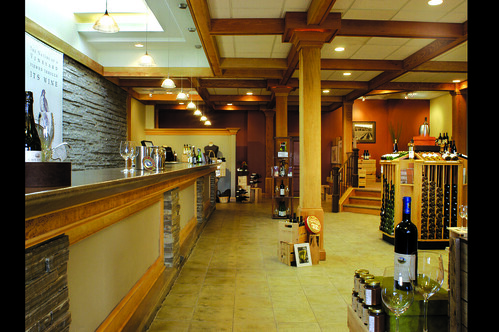
Government would need to hire a large number of liquor control inspectors.
And beyond the high cost is something more fundamental – Why should Ontario taxpayers shoulder the cost for something that will do nothing to create new market opportunities?
And fourth – if we allow these stores to start selling beer and wine, how long will it be before they want to start selling vodka and gin?
Allowing convenience stores to start selling alcohol would not bring new consumer choices to the market.
Nor would it create new options for under-served producers.
It would also be very expensive!
So let’s talk about why I’m here
In BC, we decided not to choose between public or private stores.
We chose the best of both worlds, and we’ve created many new opportunities along the way.
First of all, we kept the government-run BC Liquor Stores, which serves a certain market very well.
We did, however, remove their monopoly on selling alcohol.
Secondly, we issued new licenses that allow private stores to sell a full range of alcohol products.
This created new options for producers and consumers who were not well served by a government monopoly.
These private stores are more flexible because they operate at a smaller scale than government stores.
As a result, they can offer new products not previously available.
And besides new choices for consumers, they also support producers by creating new opportunities to sell their products.
Think about all those flavored vodkas and spirits that go in your favorite martini?
You probably won’t find them in government stores, but I guarantee you can find them in private stores.
And if not, I bet one of those private stores would order it for you.
Private competition has also prompted government stores to up their game.
They now stock more VQA wines and have also improved the look and feel of their stores.
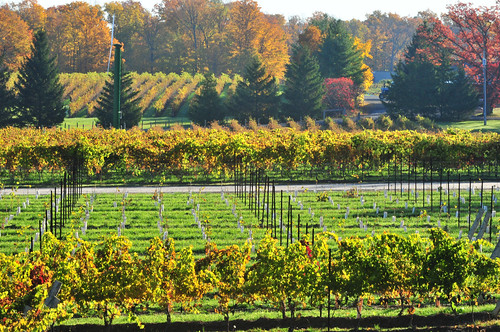
Also, by letting private stores test new products, government stores can then choose to carry the successful ones with no risk from a retail perspective, that’s a pretty great deal.
So how does this public/private model work?
The BC Liquor Distribution Branch, which also runs government liquor stores, still controls the importation and distribution of alcohol across the province.
It also sells alcohol to bars, pubs and private liquor stores.
However, private stores don’t pay the same price that you or I would pay if we shopped for ourselves.
Thanks to ABLE’s partnership with government, we’ve negotiated a wholesale price that is 16% lower than the price individual consumers would pay in government stores.
This wholesale model is not without its challenges, but it’s an important part of what makes private liquor stores in BC a viable option
That 16% represents a significant portion of profit for private stores, which otherwise operate on very tight margins.
Some private retailers may choose to pass that cost on to customers by charging higher prices, but many private stores choose to match government prices.
Some customers only care about price, while others are more concerned about convenience and selection. Each type of customer will choose based on their preferences.
In addition, private stores are also successful for a few other reasons:
1. They offer a larger range of products, many of which are premium products produced at lower volumes.
2. They can offer the convenience of chilled products, which are not available in government stores
3. They keep longer opening times. Most are open until 11 pm 7 days a week, and a growing number are open 365 days per year.
4. Better customer service and product expertise. Because these private stores usually have a specialty, a higher level of product knowledge is required to meet the needs of customers buying those products.
Now let’s look at the successes
of this public-private model
First, Government revenues are up year over year.
In 2012, the Liquor Distribution Branch transferred 911 million dollars to the government.
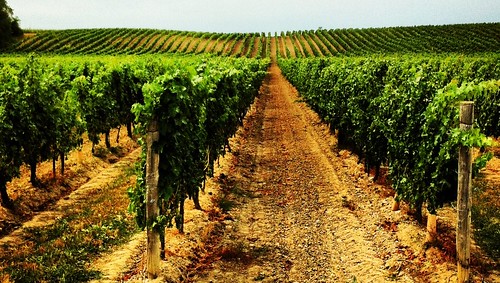
That number comes from its own retail operations, and also from its sales of liquor to private stores. It does not include liquor or sales tax.
In 2011, the Branch transferred 890 million, and in 2010, it transferred 877 million.
Of the Branch’s 2012 transfers, 56% came from private liquor sales.
To compare to Ontario, in 2012, the LCBO transferred 1.6 billion to the province, excluding taxes.
It’s a good number, but in BC, with less than one third your population, we contributed more than half that amount.
If the Ontario liquor industry mirrored ours in BC, instead of 1.6 billion going to government, that number could be around 2.7 billion.
Second, Public and private stores are equal partners in promoting age compliance, recycling and other important programs that benefit British Columbians.
Under the BC model, all liquor stores remain age-controlled environments.
I believe this is a key requirement to a responsible public/private model.
Nobody younger than 19 is permitted to enter any liquor store, and ABLE has specific programs that support our members in meeting that requirement.
To enforce this rule, in addition to requiring mandatory training for liquor store employees, the province also conducts compliance checks at both government-run and private stores.
The private sector and government work hand in hand to drive a very high level of compliance.
BC also has rules that govern the number and location of liquor stores.
There is a minimum 1km distance required when building or opening a new private store, and we recently placed a moratorium on new store construction, agreeing with government that British Columbians are well served by our current mix of 1400 stores.
By limiting the number and location of stores, we avoid having certain neighborhoods flooded by liquor stores.
Compliance efforts are also supported by a smaller number of stores, since it is much more affordable than keeping tabs on thousands of stores across the province.
I know that some people are skeptical private liquor stores would actually be as diligent as government stores on this front.
Well, let’s consider the current situation in Ontario.
The Beer Store is privately owned, and despite this, it is well known for its social responsibility efforts.
Back in 2007, over 4.4 million customers were challenged to produce ID, and over 111,000 individuals were refused service.
And even the LCBO admits that the private sector can do the job.
Did you know that it contracts out liquor sales to private companies through its agency stores?
In case you don’t know, agency stores operate in areas too small to support a full sized LCBO store.
But they are still privately owned and operated.
So let’s add those 219 agency stores to the 440 Beer Stores, and you have 659 stores, a higher number of private stores than the current 630 government-run LCBO stores.
Hmmm, it seems that you already have a socially responsible mix of public and private liquor stores.
As I finish up, I’d like to paint a picture for you.
If Ontario allowed private liquor stores, consumers would have access to hundreds of new VQA wines, craft beers and spirits.
If Ontario allowed private liquor stores, producers could grow their business because they could access new markets.
• In 2001, BC had just 66 VQA and non-VQA wineries. Today we have 214
• In 2001, BC had virtually no craft brewers. Today, we have 30
• In 2001, BC had less than 5 distilleries. Today, we have 17
Now imagine the possibilities for Ontario, with 3 times the population of BC?
For Ontario producers:
• Think about how much bigger and more dynamic your VQA wine industry could become?
• Think about how many new craft beers and spirits could enter the mix?
• Think about how many new jobs could be created as new and existing businesses grow?
For Ontario consumers:
• Think about the added convenience?
• Think about being able to buy hundreds of new products that come from your own province?
And for the Ontario government:
• Remember that potential 2.7 billion under the BC model, compared to the 1.6 billion the LCBO transferred in 2012?
• Think about what you could do with that extra billion dollars?
I believe the opportunities for Ontarians are very exciting. And I look forward to seeing the path you take.
Thank you for your time today.


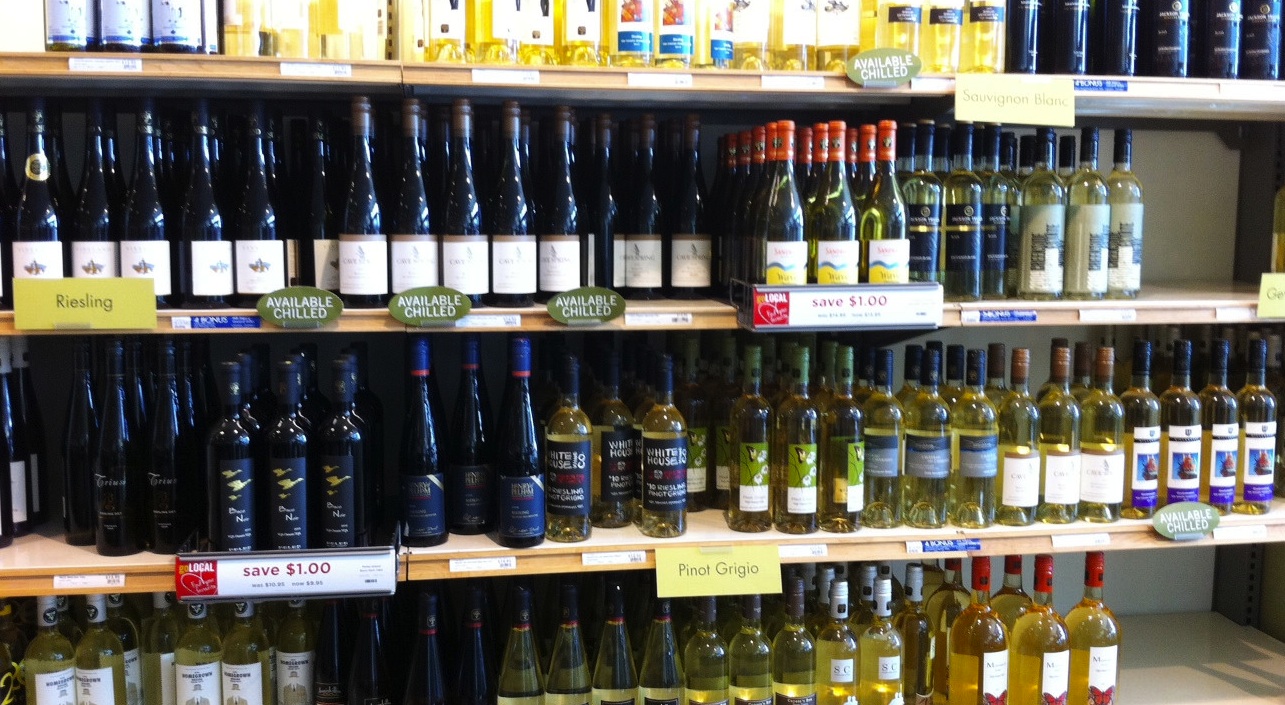



Comment here